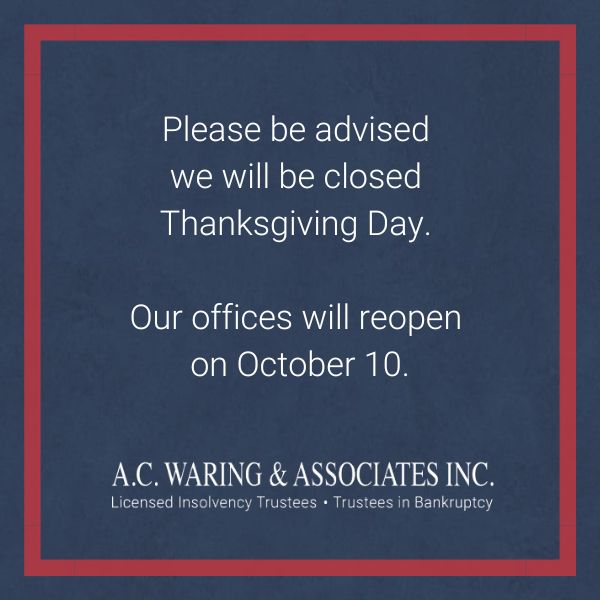In the days before credit cards, making purchases meant having cash and delaying some purchases. In a lot of ways, this was a good thing. Tough choices had to be made between what was needed versus what was wanted. Living a debt-free life in the modern age is possible. It means paying off credit cards completely every month and not accruing more debt (mortgage, car loans, etc.) that we can repay by the required dates. We forget that “credit” means “loan” and this loan is to be paid back monthly or in part, with interest payments. So, a rule of thumb is to stay out of debt unless it is managed. Debt can be managed if you have an income and plan/budget for purchases, big or small, as well as plan for savings and emergency funds.
Consumer Debt
Student Loans
Credit card debts are usually the most commonplace “loans,” even as a young person. Next may come the debt of an education loan or a car loan or, eventually, a house or condo loan/mortgage.
Planning for an education means learning to handle money early in life, acquiring a job for income savings, and learning about discretionary spending. It may also mean acquiring some student loans, depending on your circumstances. Student loans are some of the earliest debts most adults acquire.
According to a 2013 BMO study, the average Canadian student graduates with more than $26,000 in student loan debt. Prepare in advance to manage this financial obligation. Be sure to acquire and save for your education whenever possible so that your student loans start as small as possible. Store your student loan documents in one secure location. Keep track of your loan account number. Manage your money while you’re in school to give yourself an edge on repayment as soon as you graduate. This includes working a part-time job while in school and being mindful of discretionary spending.
Once you graduate, do what you can to repay your student loan as soon as possible. The longer you take to repay your loan, the more interest you’ll accrue, which increases the total amount you’ll pay back. Increasing your monthly payments by an amount as small as $50 substantially decreases your overall repayment amount.
The Income Tax Act provides a variety of resources to help graduates struggling with student loan debt. While you’re paying off student loans, you will receive a 15% tax credit on any interest accrued on the federal loan and a 10% tax credit for the Province of Alberta loan. You can also call the National Student Loan Service Centre to learn more about your repayment options.
Mortgages
Purchasing a house/condo may mean taking on a large amount of debt. Rule of thumb: Don’t make your house an emotional purchase. Before any purchase, review your present income, savings and monthly expenses. Figure out how much money you spend per month and where that money goes. Factor in all expenses as well as current debts, like car payments and student loans. As a good rule of thumb, your mortgage payment should never exceed more than 32% of your gross monthly income. Make sure you can meet all monthly expenses, including a mortgage payment, without sacrificing necessities.
Try pretending you have to make mortgage payments for at least 3 months and see if you can live within the constraints of the payments. To do this you can open a separate savings account into which you will make your monthly “pretend mortgage payment.” You are NOT allowed to dip into these funds during the trial period. Keep them in holding, pretending they belong to the mortgage repayment. You will soon find out if a house/condo purchase is doable, or if you need more time to save and budget your income.
Car Loans
If you have time prior to buying a car, save up to pay cash and/or a large portion of the initial payment. Understand the purpose of the vehicle purchase and what extras you need and can afford. Extra bells and whistles on showroom purchases increase the total expense of the vehicle. So, before purchasing a vehicle, review your present cash flow and your responsibilities related to current expenditures and repayment issues already under your wing. Balance this with a review of your household family income and general expenses, as well as the likelihood of a job change or other possible financial interruptions within the year.
Debt Overload
While the above strategies can help you manage debt BEFORE acquiring any, or additional debt, they likely won’t help if you’re already experiencing debt overload. A sample of some of the signs and symptoms of debt overload may include the following:
- You are receiving overdue notices or calls about your payment arrears
- Your utilities are being cut off
- You are way behind in your credit card payments
- You frequently ask family members and friends for cash
- You are consistently contacted by bill collectors
- You use one credit card to pay off another
- You are no longer credit worthy
- Your cheques bounce
- Your vehicle may be or is being repossessed
- Your bank gives you notice that they may recall your loan
If you’re experiencing debt overload, your debt problems are likely too serious to solve by yourself.
Contact a financial advisor at A.C. Waring & Associates Inc. – he or she will be able to evaluate your personal financial crisis and give you more information on the action options you can take to unload your overload and get debt free.




